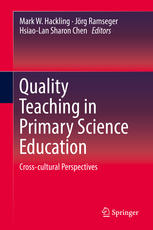

Most ebook files are in PDF format, so you can easily read them using various software such as Foxit Reader or directly on the Google Chrome browser.
Some ebook files are released by publishers in other formats such as .awz, .mobi, .epub, .fb2, etc. You may need to install specific software to read these formats on mobile/PC, such as Calibre.
Please read the tutorial at this link: https://ebookbell.com/faq
We offer FREE conversion to the popular formats you request; however, this may take some time. Therefore, right after payment, please email us, and we will try to provide the service as quickly as possible.
For some exceptional file formats or broken links (if any), please refrain from opening any disputes. Instead, email us first, and we will try to assist within a maximum of 6 hours.
EbookBell Team

4.8
34 reviewsThis edited volume explores how primary school teachers create rich opportunities for science learning, higher order thinking and reasoning, and how the teaching of science in Australia, Germany and Taiwan is culturally framed. It draws from the international and cross-cultural science education study EQUALPRIME: Exploring quality primary education in different cultures: A cross-national study of teaching and learning in primary science classrooms. Video cases of Year 4 science teaching were gathered by research teams based at Edith Cowan University, Deakin University, the Freie Universität Berlin, the National Taiwan Normal University and the National Taipei University of Education. Meetings of these research teams over a five year period at which data were shared, analysed and interpreted have revealed significant new insights into the social and cultural framing of primary science teaching, the complexities of conducting cross-cultural video-based research studies, and the strategies and semiotic resources employed by teachers to engage students in reasoning and meaning making. The book’s purpose is to disseminate the new insights into quality science teaching and how it is framed in different cultures; methodological advancements in the field of video-based classroom research in cross-cultural settings; and, implications for practice, teacher education and research.
Professor David Clarke, Melbourne University